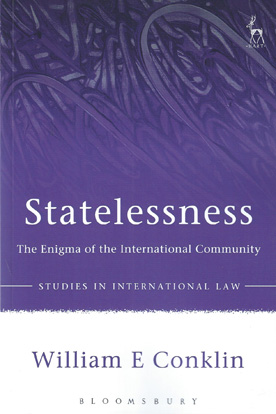
'Statelessness' is a legal status denoting lack of any nationality, a status whereby the otherwise normal link between an individual and a state is absent.
The increasingly widespread problem of statelessness has profound legal, social, economic and psychological consequences but also gives rise to the paradox of an international community that claims universal standards for all natural persons while allowing its member states to allow statelessness to occur.
In this powerfully argued book, Conklin critically evaluates traditional efforts to recognize and reduce statelessness. The problem, he argues, rests in the obligatory nature of law, domestic or international. By closely analysing a broad spectrum of court and tribunal judgments from many jurisdictions, Conklin explains how confusion has arisen between two discourses, the one discourse inside the other, as to the nature of the international community.
One discourse, a surface discourse, describes a community in which international law justifies a state's freedom to confer, withdraw or withhold nationality. This international community incorporates state freedom over nationality matters, bringing about the de jure and effective stateless condition.
The other discourse, an inner discourse, highlights a legal bond of socially experienced relationships. Such a bond, judicially referred to as 'effective nationality', is binding upon all states, and where such a bond exists, harm to a stateless person represents harm to the international community as a whole.